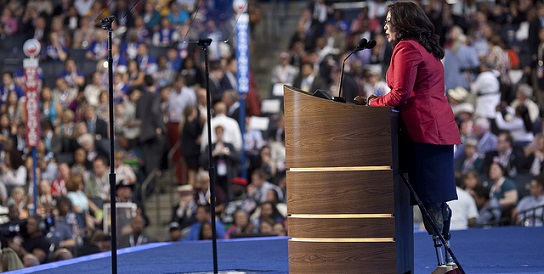Recent events in US politics have called into question the country’s attitude toward sex and gender and have invigorated discussion about women’s representation in politics. Moving beyond examination of domestic influences, Schroeder (2017) assesses how the international security environment a country faces, particularly where there is a rivalry with another country (or ‘interstate rivalry’), influences female representation in domestic politics. Schroeder lays out her argument that, with the increased risk of conflict brought about by interstate rivalry, a state becomes more militarized and national security becomes a prominent issue. Both state and society organize to manage and respond to the threat with different expectations put on women and men. The gender roles of war and security see men as combatants and women as caregivers and domestic support to war efforts. This highlights gender stereotypes that depict women as less capable in military and security matters, decreasing both voter and party preference for female candidates. Therefore, female representation decreases when a country has an interstate rival.
To test this, Schroeder used data on female representation in the legislature of democratic states, while controlling for other influences on female representation such as the use of gender quotas and the level of a country’s development. The author finds that, on average, female representation in a state legislature is expected to be 19% when there is no rival. This already low female representation is cut to almost half (10%) when there is one rival and to a third (6%) when there are two rivals. The author notes that rivalry can undermine policy important to women, because legislatures where 20 – 40% of representatives are women pass more legislation with these policies.
Schroeder’s findings emphasize that a fraught national security environment places downward pressure on women’s representation in politics. Given that female representation in the US Congress sits just below 20%, vigilance is needed. To break the glass ceiling in US politics and support gender equality in electoral politics and government policy, it is vital to redouble efforts on overcoming gender stereotypes in times of interstate rivalry. References:
Center for American Women and Politics (CAWP), Eagleton Institute of Politics, Rutgers University. (2016). Current numbers. Retrieved from http://www.cawp.rutgers.edu/current-numbers.
Schroeder, T. (2017). When Security Dominates the Agenda: The Influence of Ongoing Security Threats on Female Representation. Journal of Conflict Resolution, 61(3), 564-589.
Image credit: PBS Newshour
 This work is licensed under a Creative Commons Attribution-NonCommercial 4.0 International License.
This work is licensed under a Creative Commons Attribution-NonCommercial 4.0 International License.
